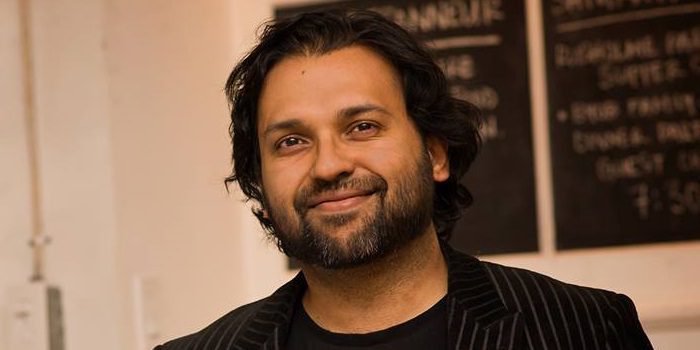“What if there was a book that described Muslims the way the Qur’an describes disbelievers? Heads would roll. Literally” reads the very intriguing thesis statement of an article written by Mr. Ali A. Rizvi that I stumbled across the other day.
The thesis of the article is simply this: Muslims claim to be victims of Islamophobia and feel offended when Islam is criticized in the West, but the very book they hold sacred (Quran) contains much more hate-speech against non-believers.
So, why the double standards, Mr. Rizvi asks?
To begin with, critiquing Islam as an ideology and issuing hate speech against Muslims are two very different things that mustn’t be conflated. Islamophobia (I prefer Muslimophobia) mustn’t be misused as a front to suppress genuine criticisms of how Islam is practiced in the contemporary world, for it affects not only Muslims, but also non-Muslims living in Muslim-majority states.
Critiquing any ideology or a certain set of beliefs, no matter how sacred they are held, should neither be legally prohibited nor discouraged since that is how humankind progresses. After all, the Quranic doctrine of Jesus not being God but rather a pious messenger of God might seem very offensive to some Christians, too!
However, the pivotal point here is not to conflate offensive speech and hate-speech—which, in my definition of it, is speech that promotes physically harming people for their beliefs, race, sexual orientation, and so on.
Unfortunately, and indeed surprisingly, Mr. Rizvi seems to do just that. In his piece, he quotes certain verses to illustrate how the Quran, if taken “literally”, contains hate speech against non-believers.
And, this essay will examine four of his claims.
Claim 1: The Quran calls all non-believers “The worst of beasts”:
“Verily, the worst of beasts in the sight of God are those who conceal (the truth), and do not acknowledge it. These are those whom you have made a peace treaty with, but they break their treaty at every opportunity and have no fear of the law.” (Quran 8:55-56)
Taking verses out of their scriptural and the overall historical context is one thing, but cherry picking a certain phrase of a verse to validate your own prejudices, irrespective to what follows, is, well, not befitting for someone who prides intellectualism so highly.
If the verses in question had only said “The worst of beasts are the non-believers” (case closed), and hadn’t gone on further to specify who exactly was being referred to and in what context, Mr. Rizvi would’ve had a slightly better case for the Quran generalizing all non-believers as “worst of beasts”, though it would still not fall under hate speech (but offensive speech).
However, the passage does go on to clarify the cause of their condemnation: not simply because these were some passive non-believers (and hence, the condemnation wouldn’t apply to them), but because they violated a treaty they had agreed to, which resulted in the deaths of many Muslims (who were already an oppressed minority)!
But, let’s just assume for a moment that the passage did indeed call all non-believers “the worst of beasts”. How, I wonder, would that be any different to the following statement made by Mr. Christopher Hitchens, someone who Mr. Rizvi greatly admires?
“Faith is the surrender of the mind; it’s the surrender of reason, it’s the surrender of the only thing that makes us different from other mammals. It’s our need to believe, and to surrender our skepticism and our reason, our yearning to discard that and put all our trust or faith in someone or something, that is the sinister thing to me. Of all the supposed virtues, faith must be the most overrated.”
To claim that billions of religious people today have all surrendered reason (as if they’re all homogeneous), and are no different from other mammals is quite an astonishing and ignorant claim to make. Not choosing sides and staying true to my principles, I would still defend his right to make it, even though I find his sentiment to be unsophisticated.
However, as for you Mr. Rizvi, do you condemn and consider this to be hate speech, as well?
Claim 2: “The reality is, religious moderates take their scripture “out of context” more than they’d like to think. Islamic apologists, for instance, like to quote the verse 2:256, which says there is “no compulsion in religion.” They won’t tell you (and many don’t know themselves) that the very next verse, 2:257, says that those who do choose to disbelieve will be ‘companions of the Fire; they will abide eternally therein.’”
Oh, we love that verse! “No compulsion in religion” – so profound, is it not, Mr. Rizvi? But, here’s the thing: these “religious moderates” you consider to be “apologists” highlight that pivotal verse to demonstrate that a punishment for apostasy is something the Quran neither advocates nor endorses. We draw our inspiration from that verse to challenge anti-apostasy laws found in some Muslim majority states, even though it puts our lives and safety at risk.
As far as the latter part of your comment is concerned, I would question: choosing to disbelieve in Islam or the ethical precepts it promotes? I’d certainly argue for the latter (This perspective adds more light to that)!
Here’s what I find hypocritical in your stance, though. If you make the “out of context” argument, it is perfectly reasonable and justified; but when we people of faith make that argument, it suddenly becomes an “excuse” and we are at once labelled “apologists”.
And this seems rather puzzling to me.
Instead of allying with these Muslims who strive for reform, you rather choose to dismiss them. Even from your point of view, being an atheist who believes Islam to be farce, shouldn’t your immediate priority be to encourage a “more humane” interpretation of the “violent text” that is the Quran? Yes, yes, I know you’d prefer getting rid of religion altogether, but let’s be more pragmatic here. I can completely understand you disagreeing with our methodology (that’s fair enough), but to call us “apologists”?
And that makes me question your priorities: Is it really about “the threat that religion poses to the world”, or is it all an exercise in ego-boosting, Mr. Rizvi?
Claim 3: The Quran—respected and revered by billions worldwide—prescribe the killing of disbelievers (Quran 8:12-13, 47:4;); order their adherents to fight and enslave those with differing beliefs, a la ISIS (Quran 9:29-30)
Now, if that were true, it would indeed be fair to say that the Quran promotes hate speech against non-believers. However, there’s a missing piece in the puzzle.
As it turns out, the Quran never commands Muslims to either persecute or physically attack non-Muslims. The permission to take up arms is only granted under self-defense. This is firmly established by the following two verses, among others, that set the foundation of how to interpret those seemingly “violent verses” in the Quran:
“As for such [of the unbelievers] as do not fight against you on account of [your] faith, and neither drive you forth from your homelands, God does not forbid you to show them kindness and to behave towards them with full equity: for, verily, God loves those who act equitably.
God only forbids you to turn in friendship towards such as fight against you because of [your] faith, and drive you forth from your homelands, or aid [others] in driving you forth: and as for those [from among you] who turn towards them in friendship; it is they, they who are truly wrongdoers!” (Quran 60:8-9)
By making that point, I do not, for a second, intend to brush aside the perpetual violence carried out in the name of Islam by Islamofascist groups such as ISIS. Don’t get me wrong: yes, there is a very serious threat that terrorist organizations such as ISIS pose to the world, and this should, in no way, be ignored.
However, I raise this point because I feel it is nonetheless important to have this discussion since calling them, like you do, “true Muslims who rightly interpret the Quran ‘literally’ instead of ‘liberally’” in fact contributes to their cause and gives them the legitimacy they so crave for. What’s more, by making such statements, we willingly give them the authority to be the sole and genuine voice representing Islam.
And this, in my opinion, is self-defeating.
Claim 4: When confronted with these facts, apologists will often respond by saying these texts should not be read “literally”—a concern that is certainly well-founded considering their contents. They know how terrible these books would sound if they weren’t liberally “interpreted” (read: distorted, sanitized), or read the way one would read any other book.
Ah, let’s just settle this once and for all. Arguing that the Quran commands Muslims to kill non-believers since a “literal” reading of a verse seems to suggest so is like arguing that the Quran is actually inherently polytheistic because a “literal” reading of a verse that employs the pronoun “We” for God proves it to be so.
Yes, Mr. Rizvi, the point you make really is that absurd. What’s more, a “literal” reading of the Quran as you so fervently suggest would also include acknowledging the Quran’s commandments of not to take its verses out of context and in a piece-meal fashion, but to rather approach it holistically (Quran – 5:41, 15:91).
So, let’s just acknowledge this: reading the Quran “literally” is not the real issue here, exclusivism is. A certain bias in reading the Quran due to previously formed assumptions about it. As I illustrated in the response to your previous claim, it is, after all, the literal reading of those verses that discredits the notion of Quran promoting aggressive warfare against non-believers and Islamofascist groups like ISIS being Islamic.
It is simply bizarre to cherry pick certain verses (or portions thereof) out of their scriptural context and interpret them in a way that is contradictory to the central message of the Quran only to validate one’s own prejudices; and then to also confidently claim that anyone who differs from such an interpretation is “just making up excuses” and is, in fact, a shameful “apologist”.
It is fairly convenient to do so, but ultimately, is only self-serving.
Conclusion
Mr. Rizvi, I disagree with the way you interpret the Quran, and you disagree with the way I interpret the Quran. This disagreement may last forever, but must we focus only on our differences and ignore the common values we both share?
I truly think that it is pointless in sustaining this polarized “us vs them” narrative for it serves no greater purpose and only creates more barriers between two liberal communities seeking more or less the same goals in life, with or without religion.
Rather, if liberal religionists and liberal atheists choose to focus on their commonalities (which, I believe, are many) without brushing each other off, and instead consider each other as allies striving for the practical pursuit of social justice and freedom of conscience, we could hope to join hands and be a greater force to reckon with.
And, I believe that is the real need of the hour.
[Picture Credit: Purple Canvas Photography]
*Ro Waseem is a reformist Muslim who believes in the power of writing for change. His articles have been published on Huffington Post, Onfaith, Express Tribune, among others. Read more of his articles here.
—
Enjoyed this piece? Please Share!















